For those of us whose fiscal year matches the calendar, the next couple months represents budgeting season. Everyone’s favorite activity in the best of times, budgeting during a pandemic is a whole new level of fun (note the sarcasm!).
Most of us saw our 2020 budget lose all accuracy and relevance somewhere between March and June of 2020, and we are looking at the next 12 months wondering how to plan for various (and realistic!) futures that range from incremental to apocalyptic.
We at MNA are leaning in and offering our help! Starting on October 22, MNA will be offering a three week series on building a budget for 2021. While we will discuss process and concepts to make the budgeting process clear and unifying for your team, we will also be rolling out a brand-new Excel tool to help walk you through the process from start to finish. If you want clarity around your budgeting process and the management of your budget into the new year, please consider joining us.
For today, though, I want to offer you some tips not about building your budget but managing your organization financially through times of great uncertainty.
- Get comfortable with ambiguity. When we build a budget, it’s important to remember that we bring countless assumptions into that plan and how our operating environment is going to look for the next year. Typically, those assumptions and plans are pretty incremental and gradual. We plan for X% growth of this program or X% reduction in that expense but resting beneath those assumptions is the foundational assumption that our operating environment will stay pretty static.The last six months of time has pulled that foundational assumption out from under our feet and has left us – with good reason – wary of trusting our assumptions moving forward. Our response to this type of disorientation is to try and make meaning of present circumstances and nail down what will happen in the future – we try to establish new foundational assumptions about the future world. However, as Liz Moore, MNA’s Executive Director, said at the MNA Conference recently, “All the figuring in the world isn’t going to give us insights that simply don’t exist.”
- Give yourself options. Instead of expending precious mental and emotional energy trying to pin down the future, use that energy to reach some consensus around a limited number of likely scenarios – we advocate best, moderate, and worst-case scenarios. Look at the big pieces of your budget – typically the 10-20% of items that make up 80% of your revenues and expenses – and run through what a best, moderate, and worst case may look like for each of those items. Doing so can help you tune out some of the noise of the uncertain world and focus you onto that which you can control, or at least that which is most relevant to your organization.
- Focus. Have a clear plan from the start of your budget year on how you plan to monitor your financial performance – what you need to see and when. Similar to how an EMT immediately monitors a patient’s ABCs (airway, breathing, and circulation) to assess their health, we need the ABCs of our organization’s health. What are the measures that point to the overall fiscal health of your organization? What are the leading indicators for a line item that point to whether you are heading toward best, moderate, or worst-case scenarios? How often do you need to monitor that indicator to spot trends early enough to allow you to act? If it’s an earned income stream, for example, a monthly review may not be often enough – you may want to see something weekly. For fundraising revenue, however, monthly may be more appropriate.
Whatever the indicator, build the system that allows you to spot trends early enough so you can act while you still have options. And then focus on those indicators as a way to cut through the “noise” of your operating environment.
Jim Collins, in his book Great by Choice, said this about focus and discipline in times of uncertainty: “No human enterprise can succeed at the highest levels without consistency; if you bring no coherent unifying concept and disciplined methodology to your endeavors, you’ll be whipsawed by changes in your environment and cede your fate to forces outside your control.”
As we begin thinking about approaching another year of great uncertainty, commit yourself and your organization to getting granular in your focus and disciplined in your approach to how you view your world, knowing that while you may not be able to predict what might happen in the future, you are prepared to respond in a way that protects your mission and your organization.
Blog by MNA’s Director of Innovation, Adam Jespersen.

